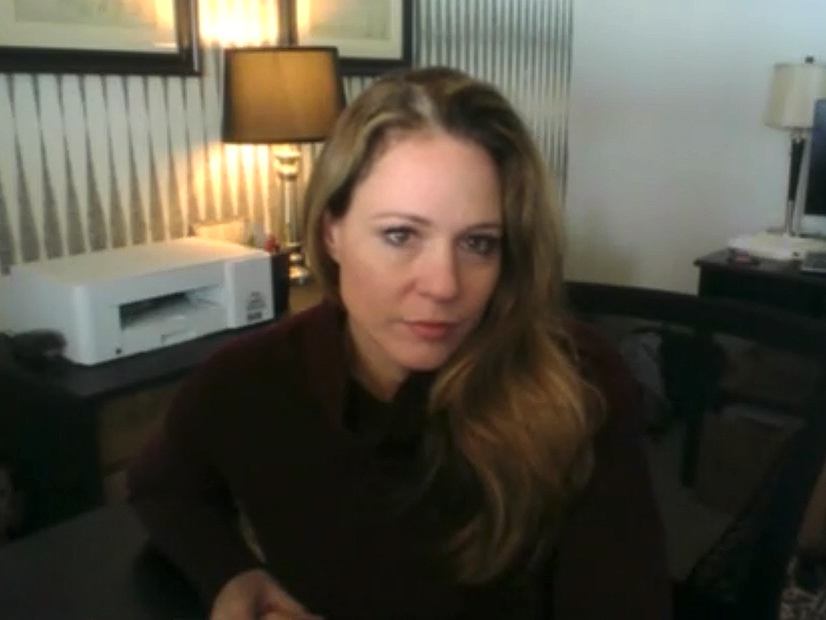NERC’s Standards Committee kept up momentum on the organization’s efforts to harden the electric grid against extreme cold during its monthly conference call on Wednesday, despite some last-minute changes to a propose standard in response to a FERC directive issued last week.
The cold weather project — Project 2021-07 — is in its second phase of development, after completion of two new reliability standards in response to the February 2021 winter storm, also known as Winter Storm Uri, that nearly collapsed the ERCOT interconnection. NERC’s Board of Trustees voted last October to approve the new standards, EOP-012-1 (Extreme cold weather preparedness and operations) and EOP-011-3 (Emergency operations), which implement many of the recommendations found in the commission’s joint inquiry with NERC into the performance of the Texas grid during Uri.
At its open meeting last Thursday, FERC approved the standards, but criticized EOP-012-1 for including “in its current form … undefined terms, broad limitations, exceptions and exemptions, and prolonged compliance periods.” (See FERC Orders New Reliability Standards in Response to Uri.)
The commission directed NERC to revise the standard to include a deadline for completing corrective action plans and a shorter grace period for generators to implement needed protection measures than the five years given in the approved version.
Modified Action on EOP-012-2
The agenda for Wednesday’s meeting originally included a motion to approve three new standards from Project 2021-07 for their initial formal comment and ballot period: EOP-011-4 and EOP-012-2, comprising updates to the standards approved by FERC last week, and TOP-002-5 (Operations planning), which adds requirements for balancing authorities to have an extreme cold weather operating process to the existing TOP-002-4. Members were also to vote on the implementation plan for all three standards.
However, during the meeting, Latrice Harkness, NERC’s manager of standards development, explained that the standards development team (SDT) wished to drop EOP-012-2 from the agenda “in the interest of using stakeholder time effectively … and work on addressing the FERC directives.” Harkness said that if EOP-12-2 had been posted for comment as originally intended, the team would have had to wait until after the 45-day comment period to respond to FERC’s directive.
Standards Committee members were generally positive about the revised motion, which included changing the implementation plan to remove references to EOP-012-2 along with the changes to NERC’s glossary proposed in the draft standard. In response to a question from Charles Yeung of SPP, Harkness confirmed that EOP-012-2 was “still on track for … board approval” by November along with the rest of the Phase 2 standards. Yeung also asked that the reason for holding separate ballot periods be “communicated to the stakeholders [voting on the standards] clearly.”
Independent member Philip Winston raised a minor point of contention, saying that, while he had “no problem with the proposal,” he was concerned “from a procedural standpoint [about] voting for something [when] we have not seen everything that we’re voting on,” referring to the motion’s absence from the agenda. However, he made clear that he would abstain from the vote rather than voting against the motion.
Other than Winston’s abstention, the proposal to post all the standards except EOP-012-2 passed unanimously. Chair Amy Casuscelli of Xcel Energy clarified that she would “make sure” the reason for the change from the agenda would be reflected in the minutes.
CIP-002 Team Gains New Mandate
The other substantive item discussed at Wednesday’s shortened meeting concerned a request for interpretation (RFI) of CIP-002-5.1a (BES cyber system categorization) from Burns & McDonnell.
The consultancy submitted the RFI last year requesting clarification of the standard’s applicability to serial communication devices in medium-impact cyber systems, with the Standards Committee approving the request at its January meeting.
NERC Senior Standards Developer Jordan Mallory explained at Wednesday’s meeting that the RFI was assigned to the SDT for Project 2021-03 (CIP-002). The team concluded that because it was already revising the standard, it would be more appropriate to create a new standard authorization request (SAR) and add the clarification to its existing mandate.
As a result, the team requested the committee formally reject the RFI and adopt a SAR drafted by NERC staff and Burns & McDonnell aimed at clarifying the original question raised by the consultancy. In addition, the committee was asked to authorize posting of the SAR for a 30-day formal comment period and assign it to the existing SDT. Members voted unanimously to accept all the requests.




